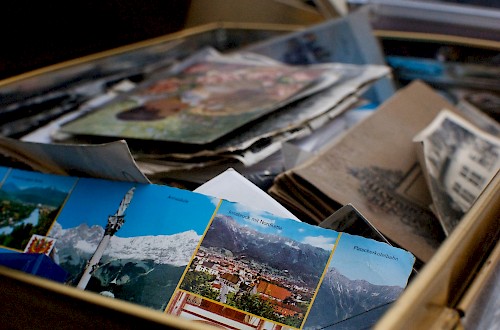We discover the art of Swedish Death Cleaning and ask ourselves is this something that people would do in Northern Ireland?
Here at Will to Give we talk a lot about death.
We talk to lots of people about supporting their favourite charity by leaving a gift in their Will.
Leaving a gift in your Will and preparing your Will goes hand in hand with talking about death and what will happen after your death.
It’s not something that people in Northern Ireland feel overly comfortable about.
Understandably, it makes us feel sad and we often put off difficult conversations as they can make us feel down or can create tension.
We’re guilty of thinking there will always be time, time to sort out the shed, time to make that appointment at the doctor, time to clear the roofspace, time to meet up with those friends.
But sometimes we leave those all-important tasks until its too late, making difficult conversations even more of a challenge
Now we’re not saying we should all enjoy talking about death.
But research shows that thinking about our own mortality is actually good for our mental health.
And that’s where Swedish Death Cleaning comes in.
The good people of Sweden who brought us our favourite furniture retailer have also brought us the art of Death Cleaning.
Swedish people call this döstädning and do it multiple times a year. They consider it to be a positive process.
Unlike, the famous Marie Kondo approach which asks us to choose to keep possessions that bring us joy, Swedish Death Cleaning asks us to consider what would happen to our possessions after we die.
So look at the objects in your home and ask yourself,
Will this be a burden to my loved ones after I die?
Will this reveal a secret that would taint people’s memory of me?
Is this something someone would like to keep after I die?
If any of your possessions will cause annoyance or distress or no serve any real purpose then throw them away or give them to a charity shop.
If you are proud of a possession and feel it will be appreciated by someone close to you after you die then keep it.
Ask yourself, “Will anyone be happier if I keep this?”
The author of The Gentle Art Of Swedish Death Cleaning, Margareta Magnusson, encourages us to involve our loved ones when deciding whether or not to keep an item.
Ask them if they’d like to have the item after you die. Just make sure they are giving you an honest answer.
We asked a few people if they thought Swedish Death Cleaning might catch on in Northern Ireland?
Claire, Newtownards, “As someone who has just Marie Kondo’d my house I’m not sure I’m overly keen on this approach. I kept lots of items that brought me joy, like photos, things my kids have made but I can’t imagine anyone else would be interested in them. Saying that I’ll probably buy the book.’
Carol, Belfast, “I do think sometimes that clearing this house will be a big job for my family after I die. But that said I’m not sure I’d want my house only containing things I think other people would like.”
Eileen, Belfast, “I found clearing my mum’s house to be quite a challenge. But it felt like an important part of my overall grieving process. I’m not sure how I’d have felt if she’d already disposed of a lot of the worthless but important things like old birthday cards etc.”
From our conversations, it would impossible to say whether or not Swedish Death Cleaning would catch on here in Northern Ireland.
But we’re keen to hear your views. Have you tried it?
——-
Will to Give is a unique network of charities working together to encourage people in Northern Ireland to leave a charitable gift in their Will.
For more information about how you can leave a gift in your Will click here.

